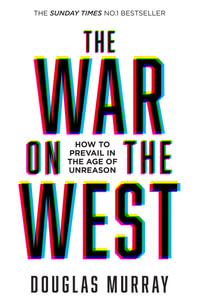Though officially neutral until March 1945, Buenos Aires played a key role during World War II as a base for the South American intelligence operations of the major powers. The Hidden War in Argentina reveals the stories of the spymasters, British, Americans and Germans who plotted against each other throughout the Second World War in Argentina. In Buenos Aires, Johannes Siegfried Becker - codename 'Sargo' - was the man responsible for organizing most of the Nazi intelligence gathering in Latin America and the leader of 'Operation Bolivar', which sought to bring South America into the war on the side of the Axis powers. After the attack on Pearl Harbor the US state department pressured every South American country to join it in declaring war on Germany, and J Edgar Hoover authorized huge investments in South American intelligence operations. Argentina continued to refuse to join the conflict, triggering a US embargo that squeezed the country's economy to breaking point. Buenos Aires continued to be a hub for espionage even as the war in Europe was ending - hundreds of high-ranking Nazi exiles sought refuge there.
This book is based on newly declassified files and details of the operations of MI6, the Abwehr, the Sicherheitsdienst (SD) and the FBI, as well as the OSS and the SOE. Most significantly, The Hidden War in Argentina reveals for the first time the coups of Britain's MI6 in South America.
Industry Reviews
In The Hidden War in Argentina, the prolific intelligence historian Panagiotis Dimitrakis provides welcome new insights into intelligence activities in Argentina during World War II ... [It] contains revelations that will interest and instruct students and specialists alike ... Dimitrakis's book fills serious gaps in our knowledge of the hidden struggle for intelligence in Argentina during the Second World War. * Michigan War Studies Review *
[The book] reveals an unmitigated volume of unique anecdotes, newly revealed archival resources, and the author's passion for history ... [It] can serve as a resource tool for students and historians of World War II espionage and intelligence activities to explore new paths of inquiry for themselves. * H-War *
[The book] provides a much-needed resource for examining intelligence operations outside of the traditional body of literature, as well as the traditional theater of operations, in a region that is not well studied or understood. * International Journal of Intelligence and CounterIntelligence *
Dimitrakis expertly reveals how clandestine warfare outside the main theatres of war altered the fate of both individuals and nations across the globe ... [the book] succeeds in illuminating the hitherto underappreciated and supremely consequential stakes of covert warfare in Latin America, saliently measures the resilience and long-term effects of fascism and reaffirms the primacy of historical contingency in shaping myriad destinies. * LSE Review of Books *
An important work that nicely balances the story of Allied and Axis intelligence work in Argentina during the war with an assessment of broader geopolitical and wartime strategy there, while also providing important analysis of the role countries like Spain played. -- Professor David A. Messenger, University of South Alabama, author of Hunting Nazis in Franco's Spain
With meticulous research and a hugely readable style, Panagiotis Dimitrakis has produced a fascinating study of this most neglected area of Second World War history. -- Martin Pearce author of Spymaster: The Life of Britain's Most Decorated Cold War Spy and Head of MI6, Sir Maurice Oldfield
























